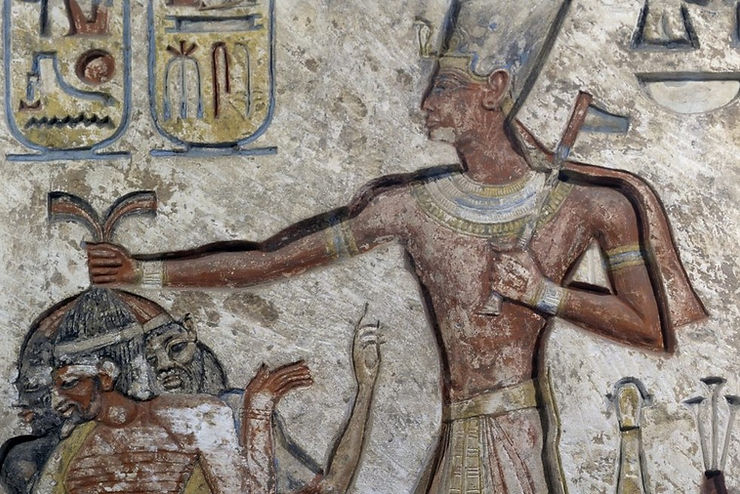By: Coco Xu
Ramses II, otherwise known as Ramses the Great, was one of the most renowned pharaohs in Egyptian history.
A talented and formidable fighter, Ramses became the captain of his father’s army at the age of 10, and led his army to countless decisive victories against rivals in Libya, Nubia, and the Near East, the most notable of which being the defeat of the Hittites at the Battle of Kadesh. According to Ramses himself, the Hittite forces were “wretched” and “ignorant of God.”
Those were lies we had believed for much too long. New archeological evidence from an excavation 200 miles east of the Libyan-Egyptian border reveals that Ramses II was not quite the pharaoh we all believed him to be.
The excavation, conducted by Dr. Steven Snape from the University of Liverpool, examined 3,300-year-old sickle blades, handstones, querns (hand-powered mills for grinding corn), and cow bones, revealing that the Egyptians were harvesting crops and raising cattle deep in Libyan territory. This evidence shows that the Egyptians were reliant on their Libyan neighbors not only for trade, but also for their knowledge of the environment and efficient farming methods.
“How on earth could Ramses have been fiercely at war with Libyan nomads — when his soldiers were living in peace with them deep in their territory?” asked Dr. Nielsen. “It just doesn’t add up.”
And most modern historians agree that the pharaoh’s version of the Battle of Kadesh was merely propaganda, not actual history. Dr. Nielsen explained that the Hittites had lured young Ramses into fighting them, which led him into endangering a part of his army. Only when three other divisions became involved was Ramses able to escape in one piece.
The Egyptians made no territorial gains and actually lost a large chunk of modern-day Syria.
“Ramses had limited pedigree as a soldier,” said Dr. Nicky Nielsen, from the University of Manchester and author of the study, “Ramses’ famous monuments heralding his prowess as a warrior were nothing more than ancient propaganda.”
[Transition here.] “When you realize that Ramses re-inscribed monuments dedicated to others — so that it appeared they were celebrating his achievements, you realize what a peddler of fake news he was,” Dr. Nielsen added. “His name was often carved so deeply, it was impossible to remove it — thus preserving his legacy. And as he fathered 162 children and ruled Egypt for 69 years, his propaganda had plenty of opportunity to take root.”











